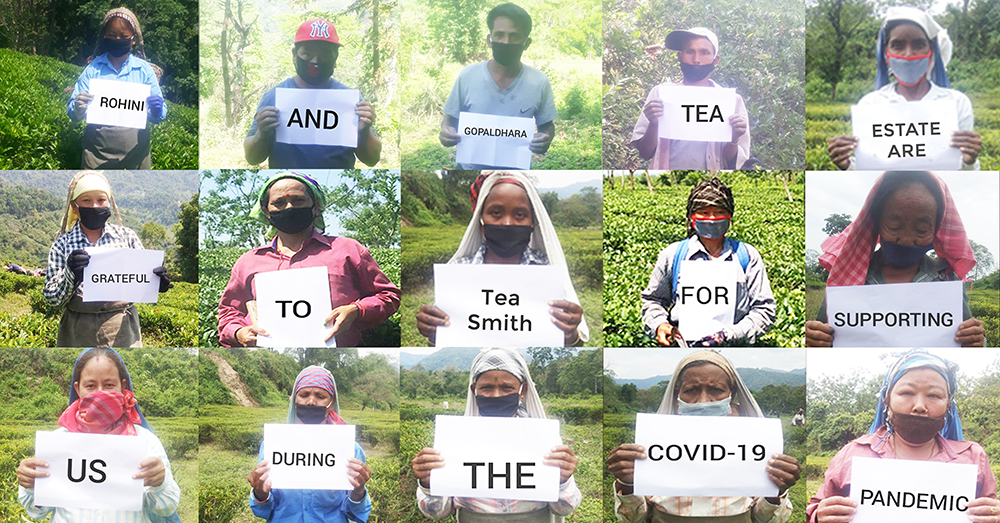Tea plants were harvested for only a few weeks this spring before the shutdown, and most of the valuable first flush was lost. The quarantine has been especially hard on India’s one million plus tea industry workers, some of whom have lived on the estates for most of their lives.
We’ve had a wonderful relationship with Rohini and Gopaldhara Estates, and they sent along a thank you image featuring some of their workers.

We were able to order a few kilograms before operations paused, and we just received some of the extremely limited 2020 first flush Darjeeling from Rohini Estate. We wish them a speedy recovery.
Tea production was shut down on the Greenwood estate for three weeks, the only such shutdown in its history. Dohri Nagbanshi, a worker living on the Greenwood estate since 1980 said, “If the tea garden job is gone, we will be in lots of trouble. We live in the tea garden. If it closed, we couldn’t live.”
Although there have been no confirmed cases of coronavirus in this region and operations have resumed with social distancing, many of the workers gained a new awareness of the fragility of their situation.
“I had no worries before the lockdown. Everything was fine,” Dohri said. “But since the lockdown there has been such a weight on my mind. Such a worry that I did not used to have.”
The UN General Assembly recognized tea’s ability to fight hunger and poverty, and recently designated May 21 as International Tea Day to raise awareness and demand. By drinking tea, we are able to help families earn their livelihood.

